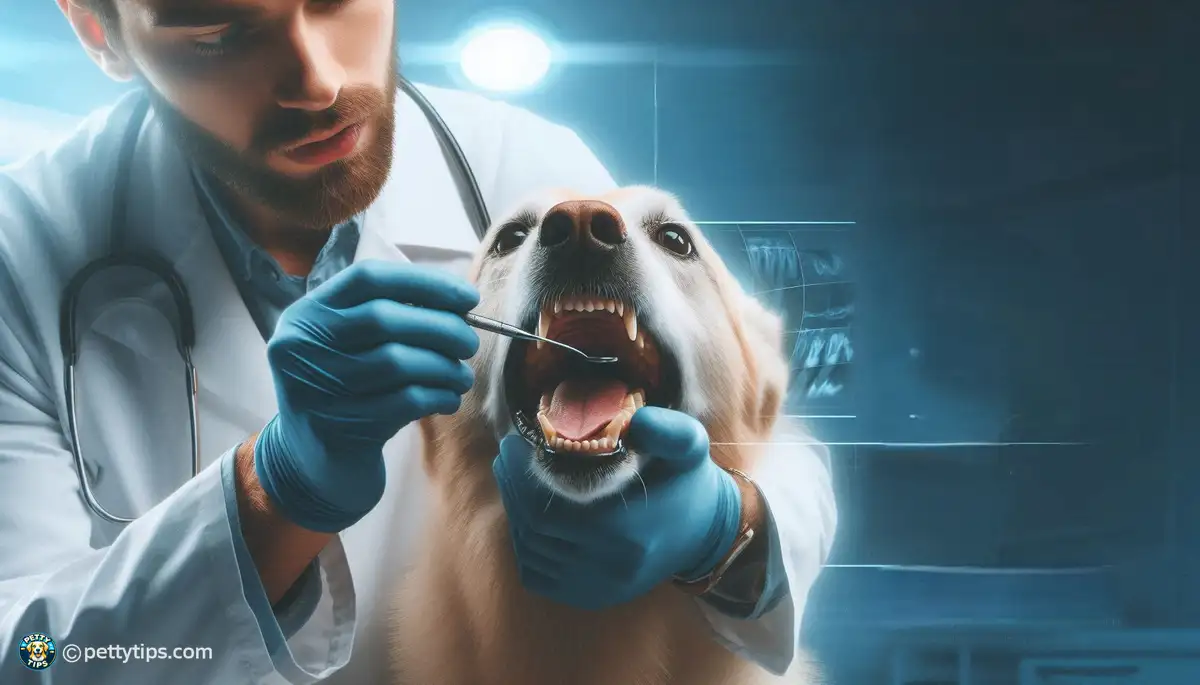
Managing Pet Anxiety with Natural Remedies
Daniel Moll - Oct 07, 2024 - 8 min read


Your furry friend's dental health is more than just having fresh breath; it's about ensuring their overall well-being. Many pet owners overlook the significance of regular dental check-ups, assuming that their pet's teeth are fine as long as they're eating well and not showing signs of discomfort. However, dental issues can lurk beneath the surface, causing silent but serious harm. Regular dental check-ups enable early detection of dental problems, allowing for prompt intervention and prevention of potentially life-threatening conditions.
Believe it or not, your pet's dental health is closely linked to their overall health. Poor oral hygiene can pave the way for various systemic diseases, including heart disease, kidney disease, and diabetes. Bacteria from dental infections can enter the bloodstream, traveling to vital organs and wreaking havoc along the way. By staying on top of your pet's dental health through regular check-ups, you not only maintain their oral hygiene but also reduce the risk of developing serious health issues down the line.
We've all encountered that infamous "doggy breath," but did you know it could signify a dental problem? Persistent bad breath in pets is often a red flag for dental issues such as gum disease or tooth decay. While the occasional unpleasant odor is normal, a consistently foul smell warrants a trip to the vet for a thorough dental examination. Addressing the root cause of bad breath early on can prevent more significant dental issues from developing.
Pets are experts at hiding pain, but changes in their eating habits and behavior can hint at underlying dental discomfort. If you notice your pet hesitating to eat, chewing on one side of their mouth, or pawing at their face, it's time to schedule a dental check-up. Discomfort while eating can indicate dental pain, making mealtime a stressful experience for your furry friend. By addressing dental issues promptly, you can restore their appetite and ensure they enjoy their meals without discomfort.
periodontal disease is one of the most common yet overlooked dental issues in pets. This inflammatory condition affects the gums and supporting structures of the teeth, leading to pain, tooth loss, and systemic health problems. What's concerning is that periodontal disease often progresses silently, with visible symptoms only appearing in advanced stages. Regular dental check-ups allow veterinarians to assess your pet's oral health and intervene before periodontal disease wreaks havoc on their teeth and overall well-being.
Just like humans, pets can experience tooth decay and abscesses, which can be incredibly painful if left untreated. Cavities in pets are often overlooked, as they may not exhibit obvious symptoms until the decay reaches the nerve of the tooth. Additionally, untreated cavities can progress to abscesses, which are pockets of infection that can lead to severe pain, swelling, and even systemic infection. Regular dental check-ups enable veterinarians to spot dental decay early and address it before it escalates into a painful and potentially life-threatening condition.
Prevention is always better than cure, especially when it comes to your pet's dental health. Regular dental check-ups serve as a cornerstone of preventive care, allowing veterinarians to identify and address dental issues before they escalate. Through professional cleanings, dental exams, and preventive treatments, such as fluoride application and dental sealants, your pet's dental health can be maintained at an optimal level, reducing the risk of dental disease and its associated complications.
The earlier dental issues are detected and treated, the better the outcome for your pet. By attending regular dental check-ups, you give your veterinarian the opportunity to catch dental problems in their infancy and intervene before they progress. Whether it's treating gingivitis, extracting a decayed tooth, or performing periodontal therapy, early intervention can save your pet from unnecessary pain and suffering. Additionally, addressing dental issues promptly can prevent the need for more invasive and costly procedures down the line, ultimately saving you time, money, and stress.
One of the most effective ways to maintain your pet's dental health between check-ups is through regular brushing. Just like humans, pets benefit from daily toothbrushing to remove plaque and prevent tartar buildup. Use a pet-specific toothbrush and toothpaste, as human products can be harmful if swallowed. Start slowly, gradually introducing your pet to the toothbrushing routine, and reward them for their cooperation. With patience and consistency, brushing can become a positive experience for both you and your furry friend.
In addition to brushing, providing your pet with dental chews and toys can help promote oral health between check-ups. Dental chews are designed to remove plaque and tartar while satisfying your pet's natural urge to chew. Look for products endorsed by veterinary dental associations, as they are formulated to be both effective and safe for your pet. Similarly, dental toys, such as rubber chew toys and dental ropes, can help keep your pet's teeth clean and healthy while providing entertainment and mental stimulation.
Regular dental check-ups are more than just routine appointments; they're a crucial investment in your pet's long-term health and well-being. By prioritizing your pet's dental health and attending regular check-ups, you can detect and address dental issues early, preventing pain, discomfort, and serious health complications. Remember, your pet relies on you to advocate for their health, so don't overlook the importance of their dental care. Schedule your pet's next dental check-up today and give them the gift of a healthy smile for years to come.